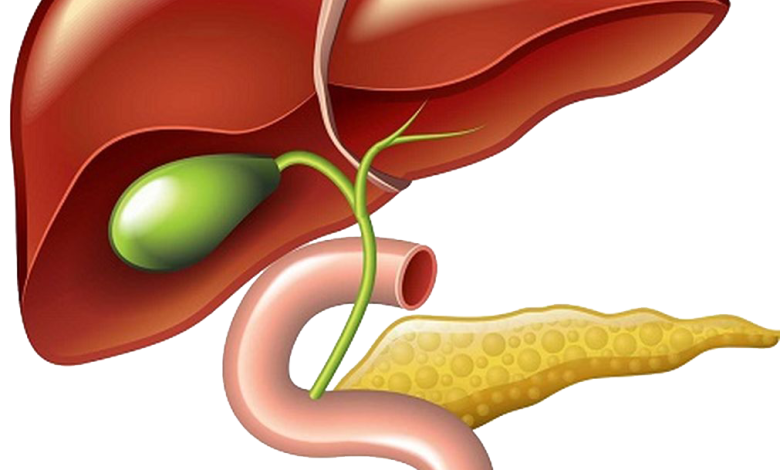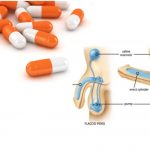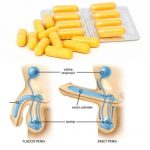Medications That Can Cause Sphincter Of Oddi Dysfunction (SOD)

A sphincter is a muscle (usually round) that can open and close. When it’s working properly, the sphincter of Oddi opens to allow bile and pancreatic juice to flow through, and then closes again. However, in a condition called sphincter of Oddi dysfunction, the sphincter muscle does not open when it should. This prevents the bile and pancreatic juice from flowing through and causes a backup of digestive juices. The backup can cause severe pain in the abdomen.
There are two basic types of sphincter of Oddi dysfunction (SOD):
• Biliary dyskinesia (the digestive juices are backing up in the bile ducts from the liver);
• Pancreatitis (the backup is occurring in the pancreas, and the pancreas is becoming inflamed).
Drug-induced sphincter of Oddi dysfunction
Drug-induced sphincter of Oddi dysfunction can occur as a result of certain medications that affect the smooth muscles of the sphincter of Oddi. Symptoms of drug-induced sphincter of Oddi dysfunction may include abdominal pain, nausea, vomiting, bloating, and indigestion.
Medications That Can Cause Sphincter Of Oddi Dysfunction (SOD)
While there are no specific medications that are known to cause sphincter of Oddi dysfunction, some medications can potentially worsen the symptoms or trigger an episode of sphincter of Oddi dysfunction in people who already have the condition.
Some medications that have been associated with aggravating sphincter of Oddi dysfunction symptoms or triggering an episode include:
1. Opioids
Opioids are a class of drugs used to relieve pain. They work by binding to opioid receptors in the brain and spinal cord, reducing the perception of pain. However, opioids can also cause the sphincter of Oddi to contract, leading to increased pressure in the bile duct and pancreas. This increased pressure can cause pain and inflammation, leading to SOD. Studies have shown that opioids can increase the risk of SOD in patients with chronic pain.
2. Triptans
Triptans are a class of drugs used to treat migraines. They work by constricting blood vessels in the brain and reducing inflammation. However, triptans can also cause the sphincter of Oddi to contract, leading to increased pressure in the bile duct and pancreas. This increased pressure can cause pain and inflammation, leading to SOD. Studies have shown that triptans can increase the risk of SOD in patients with migraines.
3. NSAIDs
NSAIDs (nonsteroidal anti-inflammatory drugs) are a class of drugs used to relieve pain and reduce inflammation. They work by blocking the production of prostaglandins, which are chemicals that cause pain and inflammation. However, NSAIDs can also cause the sphincter of Oddi to contract, leading to increased pressure in the bile duct and pancreas. This increased pressure can cause pain and inflammation, leading to SOD. Studies have shown that NSAIDs can increase the risk of SOD in patients with chronic pain.
4. Antidepressants
Antidepressants are a class of drugs used to treat depression and anxiety. They work by altering the levels of neurotransmitters in the brain, such as serotonin and norepinephrine. However, some antidepressants, such as tricyclic antidepressants, can also cause the sphincter of Oddi to contract, leading to increased pressure in the bile duct and pancreas. This increased pressure can cause pain and inflammation, leading to SOD. Research has shown that antidepressants can increase the risk of SOD in patients with depression and anxiety.
5. Cholesterol-lowering drugs
Cholesterol-lowering drugs, such as statins, are a class of drugs used to lower cholesterol levels in the blood. They work by inhibiting the enzyme that produces cholesterol in the liver. However, some cholesterol-lowering drugs, such as fibrates, can also cause the sphincter of Oddi to contract, leading to increased pressure in the bile duct and pancreas. This increased pressure can cause pain and inflammation, leading to SOD. Studies have shown that cholesterol-lowering drugs can increase the risk of SOD in patients with high cholesterol.
It is important to note that the relationship between these medications and sphincter of Oddi dysfunction is not fully understood and varies from person to person. If you are experiencing symptoms of sphincter of Oddi dysfunction, it is important to talk to your doctor to determine the underlying cause and develop an appropriate treatment plan.
How to prevent drug-induced sphincter of Oddi dysfunction (SOD)
Preventing drug-induced sphincter of Oddi dysfunction (SOD) can be challenging as the underlying causes of SOD are not fully understood. However, there are some steps that you can take to reduce the risk of developing SOD or prevent the worsening of symptoms if you have the condition.
1. Use medications judiciously: Try to avoid unnecessary use of medications that have been associated with aggravating SOD symptoms. If you need to use these medications, discuss with your doctor about the risks and benefits, and ask if there are alternative medications that you can take.
2. Be aware of medication interactions: Some medications can interact with each other and cause SOD symptoms to worsen. Make sure to inform your doctor of all medications that you are taking, including over-the-counter drugs, vitamins, and supplements.
3. Manage other medical conditions: Medical conditions such as pancreatitis, gallstones, and hepatitis can increase the risk of developing SOD. Properly managing these conditions can help reduce the risk of SOD.
4. Maintain a healthy lifestyle: Eating a healthy diet, avoiding smoking and excessive alcohol consumption, and maintaining a healthy weight can reduce the risk of developing SOD.
5. Follow treatment plan: If you have been diagnosed with SOD, it is important to follow the treatment plan recommended by your doctor. This may include medications to manage symptoms, dietary changes, and in some cases, surgical intervention.





